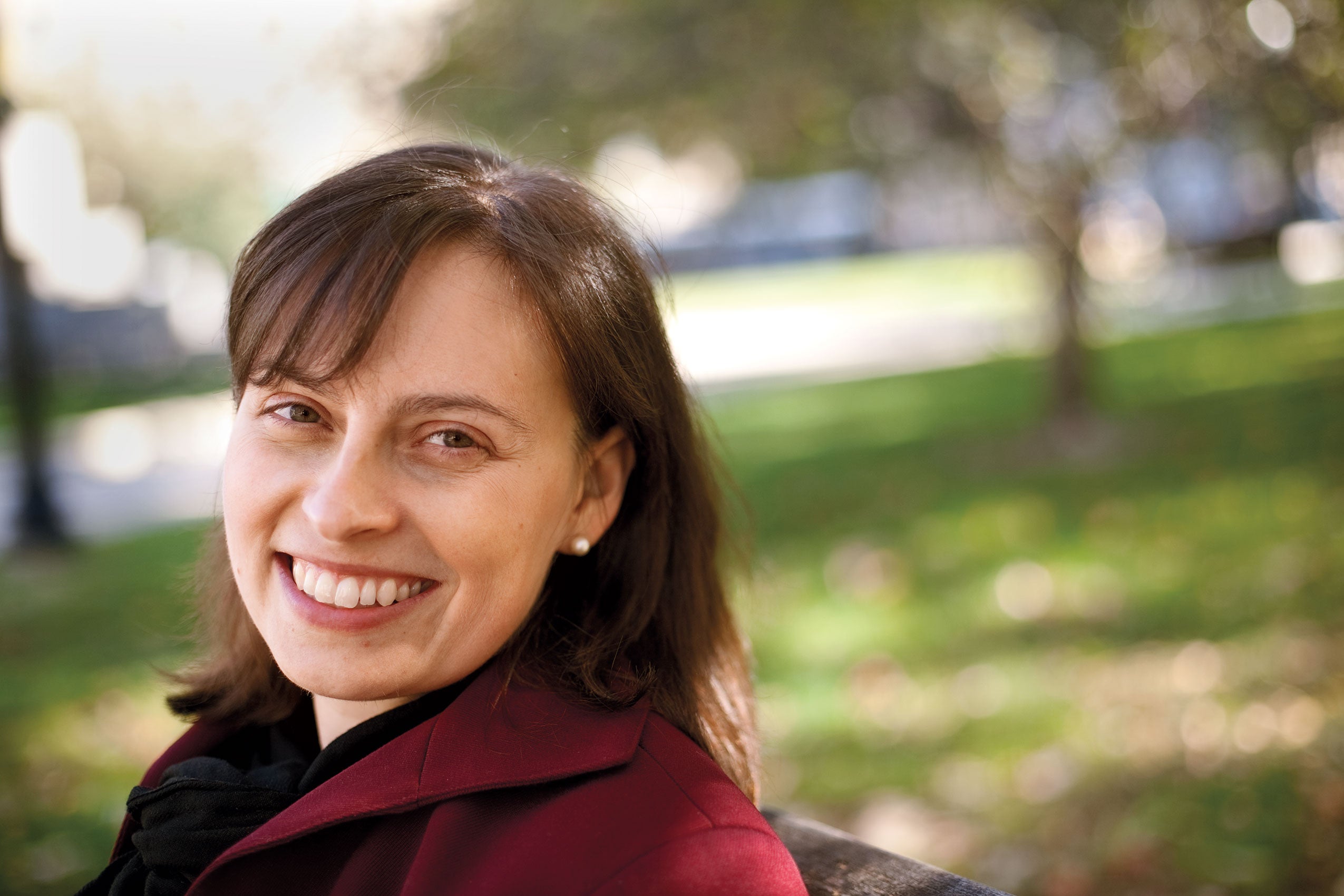Rachel Anderson ’03 enlists religious organizations to fight predatory lending
While she was in law school, Rachel Anderson ’03 dreamed of finding a way to combine her passions for the law and for her evangelical Christian faith into one career. She had no idea what that would look like, but she held out that hope as she pursued joint degrees from Harvard Law School and Harvard Divinity School.
Since graduation, Anderson has been pursuing faith-based policy work, first as public policy director of the Episcopal Diocese of Massachusetts. Next, she created a network of progressive evangelicals called the Boston Faith and Justice Network, an advocacy group of Christians committed to alleviating poverty. And since March 2009, Anderson has been the first director of faith-based outreach at the Center for Responsible Lending, a nonprofit research and advocacy group that focuses on issues surrounding predatory lending, examining practices that are discriminatory or exploitative, documenting them and formulating policy alternatives.
Based in the D.C. office of CRL, Anderson channels her expertise specifically to faith communities, where she has found tremendous motivations to address financial exploitation. “There are churches whose members’ neighborhoods are being blighted by payday lending and where people are losing their homes to foreclosures and costly and discriminatory loans,” she says.
Anderson reaches out to religious leaders to help them educate their parishioners about what is happening in the lending field, and she advocates for fairer laws and regulations.
After a summer maternity leave following the birth of her first child, she embarked this fall on an initiative with the Mississippi Center for Justice to reform payday lending in the state, where rates on short-term loans can exceed 500 percent. Along with policy advocates, educational institutions and faith communities, she is lobbying the Mississippi Legislature to reinstate a usury cap of 36 percent.
She is also enlisting faith-based groups in her advocacy efforts. After a series of meetings with leaders ranging from Catholic bishops to megachurch pastors in which they resoundingly reported that usury has hurt their members, she is offering workshops to discuss the issue within their congregations. And she is also offering media and legislative training in preparation for a state lobby day in the spring of 2011.
“Churches and religious leaders have a unique moral voice in the community,” says Anderson. “And I want them to have a voice in public decision-making to articulate their moral concerns and their moral vision.”
Fighting predatory lending unites a coalition of faith groups. Prior to the Christmas and Hanukkah holidays of 2009, Anderson, along with PICO, a national network of faith-based community organizations, helped organize a press conference in front of the U.S. Treasury Department. A rabbi, a pastor of a black Baptist church, and a Protestant minister implored the leaders of financial institutions and the Treasury that, in the spirit of the coming holidays, lenders should help families stay in their homes. Following the news conference, faith leaders met with members of the White House National Economic Council, where they delivered a letter signed by hundreds of clergy nationwide calling for specific reforms to hold banks accountable, help homeowners avoid foreclosure and protect consumers from predatory lending. PICO has continued to press financial institutions, particularly Bank of America, to end predatory lending and help families facing foreclosure.
“It’s a human issue, because homes are at risk,” she says. “And it’s a moral issue affecting what our corporations and laws and public policy look like.”
Anderson says that she’s grateful for the opportunity she had as a Harvard student “to explore both the practice of law and policymaking, and faith and ethical traditions and bring them together.” She appreciates the faculty encouragement she received at HLS to explore how her evangelical Christian values influence her perspective on the law. Of particular value to her were Lani Guinier’s class on community lawyering and Martha Minow’s on nonprofits.
Anderson first put the nonprofits class to use when she created the Boston Faith and Justice Network. “I had a desire to see my faith community engage in the public sphere in new ways,” she says.
